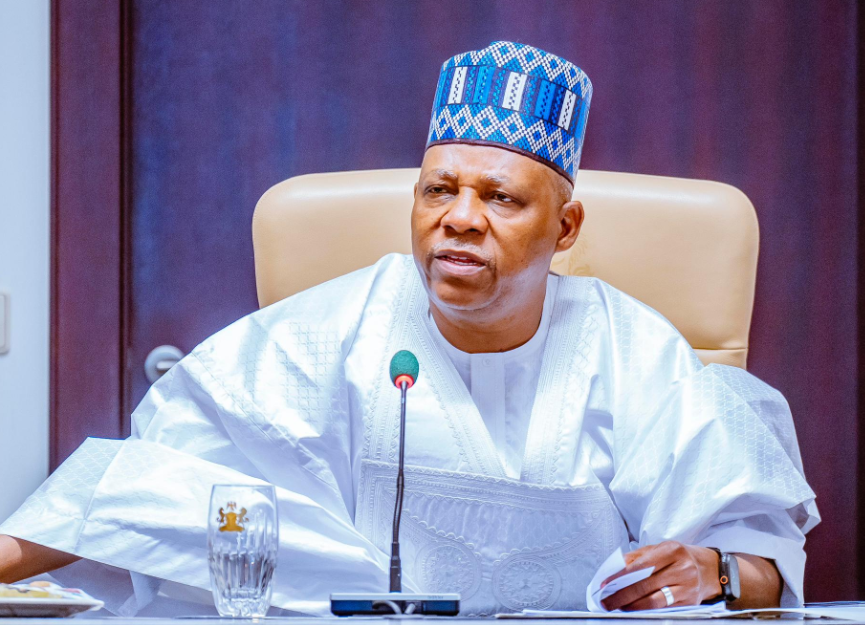Nigeria’s healthcare landscape is witnessing a remarkable shift, with the rise of “reverse medical tourism” emerging as a significant trend. Vice President Kashim Shettima highlighted this phenomenon, citing instances of patients from developed nations, including the United States, seeking medical care, specifically kidney transplants, in Nigeria. This shift is attributed to the confluence of two key factors: affordability and quality. Nigerian hospitals, particularly specialized centers like Zenith Medical and Kidney Centre, offer comparable medical expertise at significantly lower costs than their counterparts in Western countries, making them an attractive option for international patients seeking cost-effective, high-quality care. This development not only underscores the progress made in Nigeria’s healthcare sector but also presents an opportunity to further enhance the nation’s medical infrastructure and reputation on the global stage.
The affordability factor, while attracting international patients, also poses a significant challenge for many Nigerians requiring kidney transplants. The Vice President acknowledged the financial burden associated with such procedures, with patients often resorting to drastic measures like selling their homes or relying on governmental assistance. Even after a successful transplant, the long-term costs of post-transplant care, particularly immunosuppressants, present a continuing financial strain. This highlights the need for sustainable solutions to ensure affordable and accessible post-transplant care for all patients, regardless of their economic background. The government’s role in supporting these patients through subsidies or insurance programs could alleviate this burden and improve long-term outcomes for transplant recipients.
Vice President Shettima’s personal commitment to healthcare improvement is evident in his initiatives during his tenure as Governor of Borno State. He spearheaded a free maternal care program, providing comprehensive medical coverage, including caesarean sections, and supplemental food support for new mothers. The success of this program, exemplified by the high volume of deliveries recorded at a local hospital, surpassing even the University of Maiduguri Teaching Hospital, demonstrates the impact of focused and well-implemented healthcare interventions. This initiative serves as a model for replicating such programs nationwide to improve maternal health and reduce childbirth-related complications.
The focus on human capital development within the medical sector is another critical area highlighted by the Vice President. His initiative to sponsor the education of female medical students in Sudan, with the majority successfully returning to Nigeria and entering residency programs, underscores the importance of strategic investment in medical education. The emphasis on training female medical professionals is particularly noteworthy, as they are statistically more likely to remain and serve within their communities, contributing to a more equitable distribution of healthcare services across the country. This proactive approach to building a robust medical workforce is essential for ensuring the long-term sustainability and self-sufficiency of Nigeria’s healthcare system.
The upcoming 37th Scientific Conference and Annual General Meeting of the Nigerian Association of Nephrology, themed “Revolutionising Kidney Care in Nigeria: Evidence-Based Innovations,” serves as a platform for showcasing the advancements and addressing the challenges within the field of nephrology. The conference, scheduled for February 19-21, 2025, in Abuja, anticipates a significant gathering of over 600 participants, including Nigerian medical professionals based abroad, pharmaceutical companies, hospitals, and manufacturers of dialysis consumables. This event will provide an opportunity for knowledge sharing, collaboration, and the development of innovative strategies to improve kidney care across the country. The recognition of Vice President Shettima with the Kidney Champion Award further emphasizes the importance of political support and advocacy in advancing healthcare initiatives.
The collaboration between Zenith Medical and Kidney Centre and Usmanu Danfodiyo University Teaching Hospital in Sokoto for a successful kidney transplant exemplifies the potential for inter-institutional partnerships to expand access to specialized medical services. This collaborative approach leverages the expertise and resources of different institutions to benefit patients in underserved regions. The continued expansion of such partnerships is crucial for ensuring that specialized medical care is accessible to all Nigerians, regardless of their geographical location. The combined efforts of government initiatives, private sector involvement, and collaborative partnerships will be essential in driving the evolution of Nigeria’s healthcare system towards greater accessibility, affordability, and quality of care.














